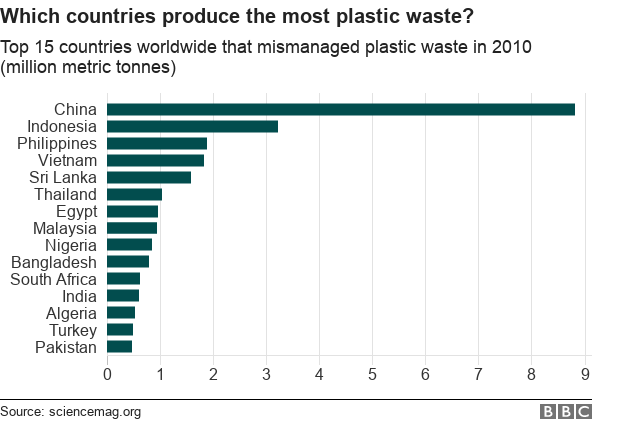
The end of throwaway plastic has been announced by UN environment ministers meeting in Kenya.
They signed a document stating that the flow of plastic into the ocean must be stopped.
Scientists welcomed the statement, but were unhappy it was only based in principle, with no firm targets or timetables.
Ministers say it’s very important because it shows governments, industry and the public that a major change is needed.
Vidar Helgesen, Norway’s Environment Minister, has been leading the UN debate on plastic pollution.
He told BBC News: “We came here with the need for action. The starting point was aiming for zero emission of marine litter. So it’s effectively a breakthrough for zero emission of plastic into the ocean.”
He admitted that this was really only the start of action against plastic litter.
Li Lin from WWF International told BBC News: “Today we have seen quite good progress on marine litter and micro-plastics.

“We would like to see this agreement implemented by governments, business, NGOs and consumers as quickly as possible. Because this issue is urgent.”
We know plastics are already damaging life in the sea, but we don’t know how much more damage it can take before whole ecosystems start to be affected.
The seas are also facing climate change, acidification, dead zones, and many types of pollution.
Delegates here hope governments will be prompted to move faster with their own national policies to reduce waste plastic, rather than just waiting for UN resolutions.
But stopping plastic litter will require new technology – and new attitudes from the public. Among the many pollution challenges facing mankind, this is arguably one of the hardest.
